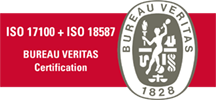Certified translation in Coimbra: fast, compliant, and ready for international use
Need a certified translation in Coimbra for visas, study or business? This guide shows timelines, apostille steps, and where to validate signatures.

Table of Contents
How to order a certified translation in Coimbra
If you already have scans or clear photos, request a quote and attach your files. You’ll get a precise price and delivery window. For clarity on what “certified” means, start with our overview of Certified Translations. You can also browse our broader Translation Services to see related options.
Once you approve the quote, a specialist linguist translates and another linguist reviews. If your recipient requires extra validation (notary or lawyer), say so early. For legal contexts, it helps to review our dedicated page on Legal Translation, as courts and public bodies can be strict about formats and wording.
Finally, you’ll receive a sealed PDF and, if needed, printed sets ready for submission. If anything is unclear, our Frequently Asked Questions covers scope, delivery formats, and how to request multiple copies.
First steps and scope: certified translation in Coimbra
Confirm where the translation will be used. A university in Portugal may accept a standard certified set; a foreign ministry may demand notarisation plus Apostille. If you’re unsure, contact the destination authority and save their written guidance. Then confirm those requirements with your project manager. For business materials—contracts, articles of association, minutes—check our Business Translation guidance to align terminology and layout with corporate standards.
Where physical validation is required, arrange signatures with a local notary or lawyer. If you are outside Portugal, you can usually courier the signed set. For budget planning and to compare options, see our page on Competitive Prices. When you’re ready, send files or questions through Contact us.
When you need notarisation or an Apostille
“Certified translation” is an umbrella term. Some recipients accept a translator’s certificate plus company seal. Others demand a notarised signature to confirm the translator’s identity. For international use between Hague Convention countries, authorities often require an Apostille of the Hague attached to the notary’s signature. Check the HCCH status table to confirm whether the destination country accepts Apostilles and which authority is competent—start here: HCCH Status Table and the HCCH Apostille Section.
In Portugal, Apostilles are issued by the Ministério Público. See the English FAQ from the Public Prosecutor’s Office about how to obtain an Apostille in Portugal: Apostille — Portugal. For local contacts (registries and notaries), the IRN portal is helpful: IRN — Institute of Registries and Notary. If you’re staying within Portugal (e.g., submitting to a university or municipality), many bodies only need the translator’s certification; for cross-border use, plan for notarisation and a possible Apostille.
Documents that often require a certified translation in Coimbra
Common categories include: birth and marriage certificates, criminal record extracts, diplomas and transcripts, driver’s licences, power of attorney, corporate filings, and medical reports. For legal filings, pair your request with our Legal Translation page to ensure terminology matches the target jurisdiction.
For relocations, universities, and visa cases, documents usually come in sets. Ask your case officer which documents must carry an Apostille. Then confirm whether each set requires copies. If a university wants both Portuguese and English versions, your project manager can coordinate parallel workflows so your certified translation in Coimbra meets both timelines with a single source set.
Timelines, pricing and how to speed things up
Turnaround depends on volume, legibility, and whether notarisation/Apostille is required. As a practical rule of thumb, most personal documents (1–5 pages) are ready within 24–72 hours for the translation stage. Notarisation and Apostille add time depending on appointment availability. To keep costs predictable, request a written quote and compare options on our Competitive Prices.
You can accelerate delivery by sending editable files or high-resolution scans, confirming spellings of names, and providing any reference templates required by the recipient. If you need multiple certified copies for different authorities, ask for them in the same order. For broader context on services and capacities, see our Translation Services overview and the dedicated page for Certified Translations.
Quality, confidentiality and legal accuracy
Certified work is handled by specialist translators and a second reviewer. Legal and academic materials benefit from subject-matter expertise and consistent formatting. Where forms have fixed layouts, we reproduce structure and stamps faithfully so submissions are accepted on the first try. For company or court matters, align with our Business Translation and Legal Translation guidance to ensure consistent terminology.
All projects are confidential and follow secure handling of personal data. If you need a non-disclosure agreement or data-processing addendum, note that in your request. When in doubt about requirements—Apostille, notarisation, language pair—send a message through Contact us or consult our detailed FAQ. With the right instructions, your certified translation in Coimbra will be complete, compliant, and accepted where you submit it.
FAQ
Q1. What’s the difference between a certified translation, a notarised translation, and an Apostille?
A certified translation includes a signed translator’s statement and company seal confirming accuracy. Many Portuguese bodies accept this alone. A notarised translation adds a notary or lawyer who verifies the translator’s identity and signature; it doesn’t re-evaluate the translation but satisfies recipients that the signer is genuine.
An Apostille is a separate certificate used between countries that participate in the Hague Apostille Convention. It authenticates the notary’s signature so foreign authorities can accept the document without further consular legalisation. If your document will cross borders, check the HCCH status table and ask the destination authority whether an Apostille is mandatory before you start.
Q2. How long does it take to get everything done in Coimbra?
For 1–5 pages, translation and certification commonly take 24–72 hours, assuming documents are legible and no special formatting is required. If you need notarisation, add time for a notary appointment and for preparing the printed sets. The Apostille stage depends on queues at the competent authority; plan extra days for peak periods.
You can shorten timelines by sending clear scans, confirming proper nouns, and telling us exactly where the document will be used. When authorities accept digital copies, delivery is faster. If you’re facing a fixed deadline, request multiple certified sets in the same order—this is more efficient than placing separate orders later.
Q3. Which documents typically require a certified translation in Coimbra for visas or study?
Most immigration and university pathways ask for identity and civil status documents (birth, marriage, divorce), police records, diplomas and transcripts, and proof of address or employment. Some destinations also require bank letters or sponsorship statements. When documents originate abroad, authorities may ask for an Apostille on the original certificate before translation.
For study admissions, universities often specify the language (Portuguese or English) and whether grades should be converted or kept original. Always save the written requirements from the recipient. That lets the project team tailor certification, notarisation, and the number of copies to your exact case.
Q4. How do I know if my destination country accepts Apostilles?
Start with the HCCH resources: the Status Table shows which countries are parties to the Apostille Convention. The Apostille Section explains competent authorities and the legal effect. If your destination is not a party, you may need consular legalisation instead.
For Portugal-issued documents, the Ministério Público provides guidance on obtaining an Apostille domestically. If your case is complex, contact the recipient institution directly and ask for their exact submission rules. Share that guidance with your project manager to avoid unnecessary steps.

